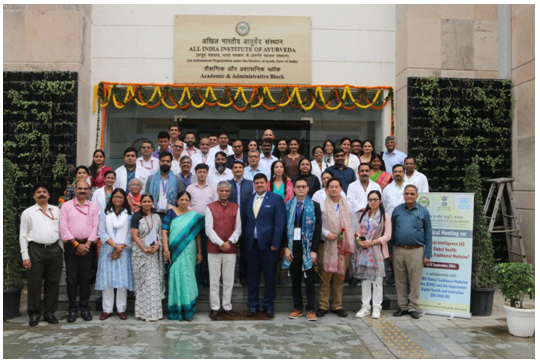A two-day global consultation on “Artificial Intelligence (AI) for Global Health: Advancing Traditional Medicine” was held on September 11-12, hosted by the All India Institute of Ayurveda (AIIA). The event, organized in collaboration with the World Health Organization (WHO) Global Traditional Medicine Centre and the Department of Digital Health and Innovation, focused on integrating AI into traditional medicine practices. It concluded with plans to release a technical brief on AI in traditional medicine by October 2024.
The meeting saw participation from 60 experts across 15 countries, including representatives from WHO and the World Intellectual Property Organization (WIPO). The group aims to release joint WHO-WIPO guidance on AI and intellectual property in traditional medicine over the coming year. Discussions also included creating a global AI-powered repository on traditional medicine and developing training modules for professionals.
Vaidya Rajesh Kotecha, Secretary of the Ministry of Ayush, highlighted the role of digital technologies like AI, e-health, and cloud computing in enhancing healthcare systems, referencing India’s National Health Policy 2017 and the Ayush Grid framework.
Prof. Tanuja Nesari, Director of AIIA, praised the diverse inputs from participants, which will shape the forthcoming policy on AI in traditional medicine. Dr. Manoj Jhalani from WHO SEARO emphasized how AI could enhance traditional medicine by discovering new treatments and improving current practices.
WHO’s Sameer Pujari outlined the organization’s Global Initiative on AI for Health, which promotes the use of AI through policy development and knowledge sharing. Dr. Karthik Adappa, also from WHO SEARO, pointed out that while AI adoption is growing, developing countries still face challenges related to infrastructure, privacy, and ethical AI use.




















